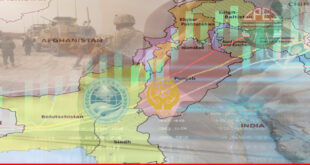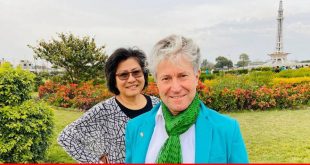New leadership is expected to bring change, a shift from the existing position of Pakistan. Each government must put people first where politicians make every effort to promote law and order issues, social justice and equality among the people. What the country needs is governance, which so far is only practiced in organizations rather than the government. Governance incorporates the sense that needs of the people are met including basic necessities of life. The challenge for any government is to maintain economic stability for betterment of lives of its people. The previous government did little for the economy and the people. People were affected with inflation pushing the middle class below the poverty line. In addition law and order issues have been of paramount importance, which the police had no control over. Supply side inflation resulting from fuel and energy prices has increased the prices of food stuff, vegetables and fruits whereas the minimum wage has remained same. The government has not been able to increase tax base of Pakistan, therefore, has to rely on external source of financing from the IMF.
Foreign or domestic investment by either the government or the private sector is the key. Foreign investments are hard to come by as the country risk of Pakistan is high. Local investments await changes in policies the new government will bring in. Handful of manufacturing concerns is looking for long term investments whereas project finance is slow. With a poor tax base and imports double of exports, the only major source of funding for the government is borrowing from the private sector. Private sector investments are not as robust due to issues associated with electricity and gas shortages, security conditions, and political environment. Under these circumstances banks were discouraged to lend based on the risk involved whereas manufacturing concerns avoided expansion projects. The challenge for SBP with the Monetary Policy is to reduce inflation and encourage private sector lending alongside an attractive rate of return for depositors to counter rise in inflation. Pakistan is a net importer, therefore any devaluation in the exchange rate against the dollar will make imports expensive and put further pressure on the reserves.
State Bank of Pakistan (SBP) policy rate is on a decline to help boost the economy and lending by banks. Lending on the consumer front has declined due to NPL’s (non performing loans) whereas new loans are only being extended with high asset quality. Lending just through reduction in interest rate will not benefit the economy as the country needs an investor friendly environment, expected to change under the new. According to manufacturing concerns, interest rates would have to decline further to encourage long term loans for capacity expansion; else manufactures will be complacent with current production capacity. Though banks are more than willing to take exposure on long term finance, opportunities in Pakistan, especially with the current economic state is seldom.
There has been a perpetual debate how to match fiscal with the monetary policy. Monetary policy cannot work in isolation unless such policies work hand-in-hand with fiscal decisions to increase tax base and eliminate transactions, which run parallel to the economy. Though decisions to maneuver the economy also rests in the hand of the new and upcoming government, what will eventually help resolve the situation is high degree of integrity and accountability for public so that the government is less reliant on the banking sector. If the future government pulls back on borrowings from the banking system, banks will automatically lend to help maintain the bottom line and profitability. We can only expect that declining interest rates would assist in GDP growth, create employment and give wider access to the public through bank advances. Our biggest asset and export are the human resources which are leaving Pakistan to find jobs abroad. This resource remits more than $1 billion each month on average. It is expected that the inflow of worker remittances will reach $15 billion by FY13. If Pakistani skills is our best export and can help build reserves, it only makes sense to encourage more people to find jobs abroad.
The country needs to have an enabling environment through proper infrastructure, ample supply of energy and power, low input costs and an environment where tax rebates should be given for new initiatives just as witnessed in UAE. The interest rates to encourage investments would need to be reduced further. Once again, private sector investments will not increase through off-take of credit if the economic environment and macro issues, which include political uncertainty, terrorism and law and order issues are resolved. These measures will not only help increase GDP but will also assist in job creation, which will encourage those involved in criminal activities to leave their ways and find work.
There is opportunity for Greenfield investments in new projects. Gwadar port could become as robust as Dubai port managing the traffic of South Asia. Pakistan is an agrarian economy as this sector needs vast investments. We do not have proper facilities for agriculture research like we have seen time and again in USA. Basic infrastructure i.e. roads, dams and bridges need to be revamped. With the ongoing energy crisis, investments are required to be made in power projects which are a basic necessity. If only the petroleum and diesel prices are reduced, the gas used for transportation can be directed towards the industrial sector for gas generated power, which would reduce the cost of production and assist the fertilizer sector for production of urea. These efforts will still not yield results if our workforce is not educated, therefore, budget on education should be tripled with government system of education comparable to international standards. Development in a country takes strategic decisions and commitment for execution. We can only hope that the issues highlighted are addressed over the next 5 years.
 PAGE Blog Business Weekly Magazine
PAGE Blog Business Weekly Magazine

